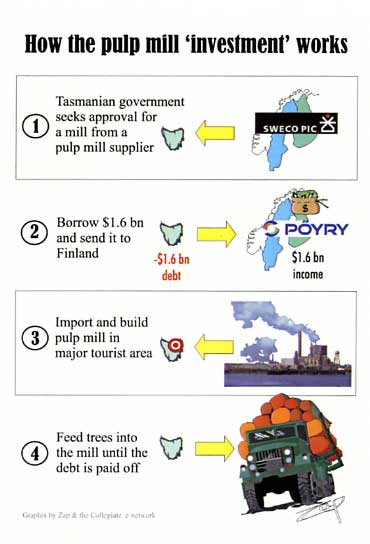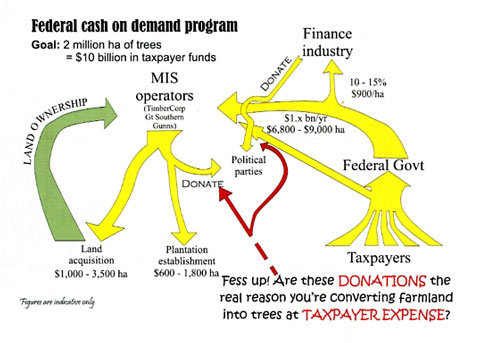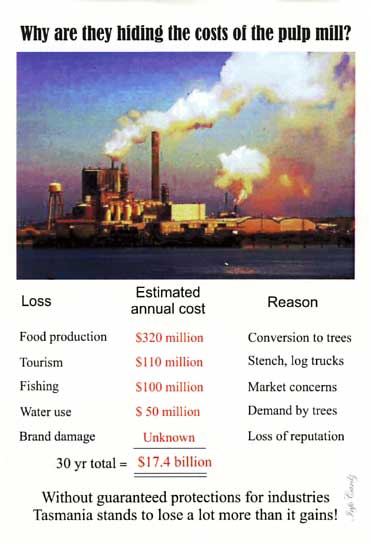Tasmania’s hardwood plantation resource is of vital importance to future economic growth.
However, the currently favoured option of converting plantations to wood chips and pulp offers Tasmania:
- declining returns;
- processes with high environmental impact;
- commercial disadvantages for businesses involved in the forest products supply chain;
- inflexibility in developing high value alternative products.
There are real OPTIONS that offer:
- environmentally benign processes;
- multiple high value products that provide competition in the market place for the forest resource;
- compatibility with other growth areas of the local economy that depend on Tasmania’s clean image;
- effective linking to the existing high tech skills base in Tasmania.
Other options for using plantation wood include:
- replacing products hitherto manufactured from crude oil such as plastics, paints, pharmaceuticals and adhesives;
- producing transport fuels;
- using biomass as a fuel source for power, etc.
Download a report by engineer Michael Scott on Tasmania’s options for best use of hardwood plantations ‘Prospects for downstream processing of plantation hardwood.pdf’



